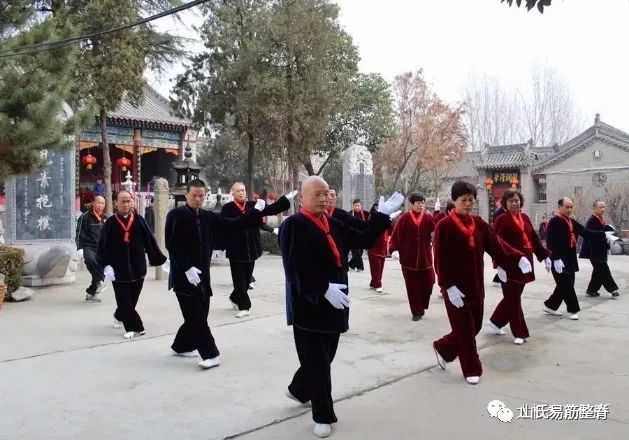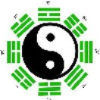Qi Deficiency is a term in Traditional Chinese Medicine (TCM) that refers to a series of pathological changes and syndromes caused by insufficient vital energy (Qi). Qi is the most fundamental substance in the human body, formed by the essence of the kidneys, the Qi absorbed and transformed by the spleen and stomach from food and water, and the clear Qi inhaled by the lungs. Qi deficiency generally refers to symptoms such as physical weakness, pale complexion, shortness of breath, fatigue in the limbs, dizziness, sweating upon exertion, and a weak voice. It includes the deficiency of Yuan Qi (Original Qi), Zong Qi (Gathering Qi), and Wei Qi (Defensive Qi), as well as a reduction in the functions of Qi in promoting, warming, defending, consolidating, and transforming, leading to decreased or weakened bodily functions and a decline in disease resistance. Fundamentally, human life activities are movements of the rise and fall of Yuan Qi. Qi deficiency is a common syndrome, often caused by congenital insufficiency, malnutrition, aging, prolonged illness, major surgery, or excessive fatigue. Clinically, Qi deficiency also includes syndromes such as Lung Qi deficiency, Heart Qi deficiency, Spleen Qi deficiency, and Kidney Qi deficiency.
Qi deficiency is often caused by insufficient congenital endowment, lack of nourishment, excessive labor, prolonged illness, or reduced function of the lungs, spleen, and kidneys, leading to insufficient Qi production. When compared to modern medicine, Qi deficiency is very similar to the concept of “sub-health,” which is fundamentally caused by insufficient Yin, Yang, Qi, and blood, and reduced organ function, aligning with the idea of Qi deficiency.
Qi deficiency can involve all five organs. Qi is the most basic substance that constitutes and maintains human life activities, belonging to the category of essence and Qi. The essence and Qi of the human body are stored in the five organs, hence the statement in the Suwen (Plain Questions) that “the five organs store essence and Qi without leaking.” Therefore, from the perspective of the source of Qi, the Qi that constitutes and maintains human life activities mainly comes from both congenital essence and acquired essence. From the perspective of the generation of Qi and its relationship with the organs, all five organs store essence and Qi, especially the lungs, spleen, and kidneys.
Qi deficiency relates to the Qi of the five organs. Qi deficiency refers to a pathological state of weakened organ function and reduced disease resistance, which can produce a series of clinical symptoms. However, since Qi is stored in the five organs, Qi deficiency is usually interconnected with the functions of those organs. The Suwen describes different dream states caused by Lung Qi deficiency, Kidney Qi deficiency, Spleen Qi deficiency, Heart Qi deficiency, and Liver Qi deficiency. Therefore, the pathological concept of Qi deficiency should include the Qi deficiency of the five organs.
Qi deficiency can affect various aspects of the body. For instance, Qi deficiency leads to a lack of strength in the defensive Qi, making the body prone to sweating; Qi deficiency results in malnourished muscles in the limbs, causing fatigue; Qi deficiency leads to the failure of clear Yang to rise, resulting in mental fatigue and dizziness; Qi deficiency causes weakness in blood circulation, leading to a weak or thin pulse; Qi deficiency can disrupt fluid metabolism, causing phlegm accumulation and even edema; Qi deficiency can also lead to reduced organ function, manifesting as a series of signs of organ weakness.
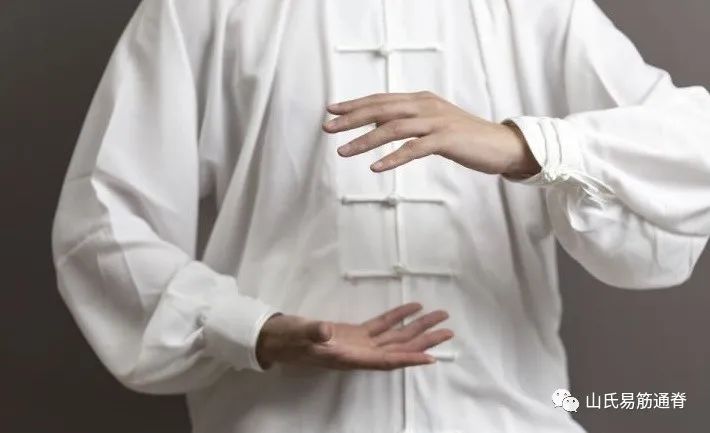
1. Lung Qi Deficiency
The lungs govern Qi, control respiration, and regulate the water pathways. When Lung Qi is deficient, its functions of dispersing and descending, regulating water metabolism, and resisting external pathogens are weakened, leading to symptoms such as shortness of breath, spontaneous sweating, low voice, cough, asthma, chest tightness, susceptibility to colds, and even edema or difficulty urinating.
2. Kidney Qi Deficiency
The kidneys reside in the lower back, store essence, and control the opening and closing of the two Yin. Essence nourishes the five organs and ascends to the brain and marrow. When Kidney Qi is deficient, it fails to nourish, resulting in fatigue, dizziness, forgetfulness, weakness in the lower back and knees, frequent clear urination, and pale tongue with a weak pulse. If the kidneys cannot hold Qi, breathing becomes shallow and rapid.
3. Spleen Qi Deficiency
The spleen is located in the middle burner, governs transformation and transportation, and controls blood circulation. When Spleen Qi is weak, it cannot transform food and fluids effectively, leading to insufficient Qi and blood production, resulting in symptoms such as reduced appetite, discomfort after eating, fatigue, weight loss, loose stools, pale yellow complexion, pale tongue with thin coating, and weak pulse.
4. Heart Qi Deficiency
The heart governs blood vessels and houses the spirit. When Heart Qi is deficient, it cannot propel the blood, nor can it nourish the spirit, leading to palpitations, shortness of breath, excessive sweating, fatigue, pale tongue, and weak pulse.
5. Yang (Qi) Deficiency
Qi deficiency may present with a pale complexion, dizziness, shortness of breath, fatigue, and even fainting. Yang deficiency, in addition to symptoms of Qi deficiency, also includes cold limbs, spontaneous sweating, a deep and slow pulse, and a pale tongue with a white coating.

1. Lung Qi Deficiency
Symptoms: shortness of breath, spontaneous sweating, low voice, cough, asthma, chest tightness, susceptibility to colds, and even edema or difficulty urinating. Treatment principle: tonify Lung Qi. Main formula: Si Jun Zi Tang (Four Gentlemen Decoction) combined with Yu Ping Feng San (Jade Windscreen Powder). Ingredients: Dang Shen (Codonopsis), Fu Ling (Poria), Bai Zhu (White Atractylodes), Gan Cao (Licorice), Huang Qi (Astragalus), Fang Feng (Siler).
2. Kidney Qi Deficiency
(1) General Kidney Qi deficiency symptoms: fatigue, dizziness, forgetfulness, weakness in the lower back and knees, frequent clear urination, pale tongue, and weak pulse. Treatment principle: tonify the kidneys and benefit Qi. Main formula: Shen Qi Wan (Kidney Qi Pill) with modifications. Ingredients: Bu Guo Zhi (Psoralea), Gou Qi Zi (Goji Berries), Tu Si Zi (Cuscuta), Fu Zi (Aconite), Gui Zhi (Cinnamon), Huang Jing (Polygonatum), Fu Ling, Shan Yao (Chinese Yam), Shan Zhu Yu (Cornus), Sang Ji Sheng (Mulberry Mistletoe), Dang Shen, Bai Zhu.
(2) Kidney Qi not firm symptoms: in addition to general Kidney Qi deficiency symptoms, there may be frequent clear urination, or dribbling, nocturia, or enuresis; in men, premature ejaculation; in women, excessive clear discharge; or irregular menstruation. Treatment principle: tonify the kidneys and stabilize. Main formula: Shen Qi Wan with modifications, or use Jin Suo Gu Jing Wan (Golden Lock Pill) or Suo Quan Wan (Suo Quan Pill). Ingredients: Bu Guo Zhi, Gou Qi Zi, Tu Si Zi, Fu Zi, Gui Zhi, Huang Jing, Fu Ling, Shan Yao, Sang Ji Sheng, Sang Qiao (Silkworm), Jin Ying Zi (Cherokee Rose), Yi Zhi Ren (Alpinia).
(3) Kidney not holding Qi symptoms: on the basis of Kidney Qi not firm, there may be chronic cough and asthma, shallow breathing, and shortness of breath, especially upon exertion. Treatment principle: tonify the kidneys and hold Qi. Main formula: Qi Wei Du Qi Wan with Ren Shen (Ginseng), Fu Zi, Long Gu (Dragon Bone), Mu Li (Oyster Shell), etc. Ingredients: Wu Wei Zi (Schisandra), Shu Di Huang (Rehmannia), Dan Pi (Moutan), Ze Xie (Alisma), Fu Ling, Shan Yao, Gou Qi Zi, Tu Si Zi, Fu Zi, Ren Shen, Long Gu, Mu Li, Ge Jie (Gecko), Dong Chong Xia Cao (Cordyceps), Hai Long (Sea Horse), etc.
3. Spleen Qi Deficiency
(1) General Spleen Qi deficiency symptoms: reduced appetite, discomfort after eating, fatigue, weight loss, loose stools, pale yellow complexion, pale tongue with thin coating, and weak pulse. Treatment principle: strengthen the spleen and benefit Qi. Main formula: Liang Jun Zi Tang (Six Gentlemen Decoction). Ingredients: Dang Shen, Fu Ling, Bai Zhu, Gan Cao, Fa Ban Xia (Pinellia), Chen Pi (Aged Tangerine Peel).
(2) Middle Qi sinking symptoms: heavy sensation in the abdomen, increased appetite, or frequent urge to defecate; or chronic diarrhea, or even prolapse; or uterine prolapse; or cloudy urination. Accompanied by fatigue, low voice, dizziness. Pale tongue with white coating, weak pulse. Treatment principle: tonify the middle and benefit Qi. Main formula: Bu Zhong Yi Qi Tang (Tonify the Middle and Benefit Qi Decoction). Ingredients: Huang Qi, Ren Shen, Bai Zhu, Gan Cao, Sheng Ma (Cimicifuga), Chai Hu (Bupleurum), Dang Gui (Angelica), Zhi Ke (Bitter Orange), Fa Ban Xia, Chen Pi.
(3) Spleen not controlling blood symptoms: often seen in chronic bleeding conditions such as excessive menstruation, bleeding, blood in stools, epistaxis, and subcutaneous bleeding. In addition to bleeding, symptoms of Spleen Qi deficiency are also present. Treatment principle: tonify the spleen and control blood. Main formula: Gui Pi Tang (Restore the Spleen Decoction). Ingredients: Huang Qi, Dang Gui, Yuan Rou (Longan), Mu Xiang (Aucklandia), Yuan Zhi (Polygala), Suan Zao Ren (Sour Jujube Seed), Sheng Jiang (Fresh Ginger), Da Zao (Jujube), Dang Shen, Bai Zhu, Gan Cao, A Jiao (Donkey-hide Gel), etc.
4. Heart Qi Deficiency
Symptoms: palpitations, shortness of breath, excessive sweating, fatigue, pale tongue, and weak pulse. Treatment principle: tonify Heart Qi. Main formula: Si Jun Zi Tang, Yang Xin Tang (Nourish the Heart Decoction). Ingredients: Dang Shen, Fu Ling, Bai Zhu, Gan Cao, Huang Qi, Yuan Zhi, Dang Gui, Bai Zi Ren (Biota Seed), Suan Zao Ren.
5. Yang (Qi) Deficiency
Symptoms: pale complexion, dizziness, shortness of breath, fatigue, and even fainting. Yang deficiency, in addition to symptoms of Qi deficiency, also includes cold limbs, spontaneous sweating, a deep and slow pulse, and a pale tongue with a white coating. Treatment principle: tonify Yang and benefit Qi. Main formula: Shen Fu Tang (Ginseng and Aconite Decoction). Ingredients: Ren Shen, Fu Zi, Huang Qi.
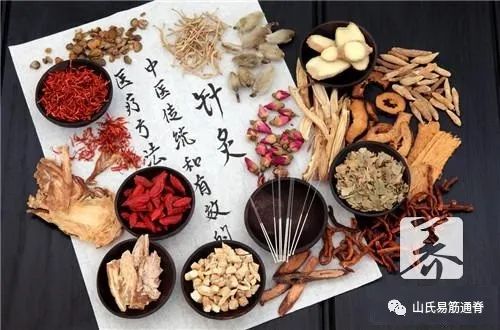
Qi-Boosting Foods
(1) Jiang Mi (Japonica Rice) is neutral in nature and sweet in flavor, capable of tonifying the middle and benefiting Qi. It has been recorded in the Bie Lu (Classics of Materia Medica) as a Qi tonic. The Tang dynasty food physician Meng Shen also stated: Japonica rice warms the middle and benefits Qi. The Qing dynasty physician Wang Mengying praised Japonica rice porridge as a “poor man’s ginseng soup,” stating that the poor suffer from deficiency and can use thick rice soup instead of ginseng soup. Those with Qi deficiency should consume it regularly.
(2) Beef is neutral in nature and sweet in flavor, beneficial for Qi and blood, tonifying the spleen and stomach, and strengthening the muscles and bones. The famous physician in the Bie Lu stated: beef calms the middle and benefits Qi, nourishing the spleen and stomach. The Han Shi Yi Tong also states: yellow beef tonifies Qi, similar to the function of Huang Qi (Astragalus). This shows the Qi-boosting power of beef, so those with Qi deficiency should consume it regularly.
(3) Dog Meat is warm in nature and salty in flavor, capable of tonifying the middle and benefiting Qi, especially for those with Qi deficiency combined with spleen, kidney, lung, or Yang deficiency. The Ri Hua Zi Ben Cao states: dog meat tonifies stomach Qi, strengthens Yang, warms the lower back and knees, tonifies deficiency, and boosts Qi. The Yi Lin Zuan Yao also states that dog meat tonifies lung Qi and consolidates kidney Qi, especially suitable for consumption in autumn and winter.
(4) Chicken is warm in nature and sweet in flavor, with the effects of warming the middle, benefiting Qi, tonifying essence, and nourishing blood. It is suitable for Qi deficiency, blood deficiency, and kidney deficiency. There is a custom in folk medicine to use Huang Qi (Astragalus) to stew old hen, which enhances the Qi-boosting effect.
(5) Catfish is warm in nature and sweet in flavor, capable of entering the spleen and lungs to boost Qi. The Ming dynasty physician Li Shizhen in the Ben Cao Gang Mu stated: catfish warms the middle and benefits Qi. The Qing dynasty food physician Wang Mengying also believed that catfish warms the stomach and boosts Qi, benefiting the skin. Therefore, those with Qi deficiency should consume it.
(6) Eel is warm in nature and sweet in flavor, with the effects of tonifying deficiency, boosting Qi, and strengthening muscles and bones. Those with Qi deficiency should consume it regularly. The Qian Jin Shi Zhi states that it is good for shortness of breath and weakness. The Ben Cao Yan Yi Bu Yi also states that yellow eel is good for boosting Qi.
(7) Mandarin Fish is known as Gui Yu and can tonify Qi and blood, benefiting the spleen and stomach. The Ri Hua Zi Ben Cao states: mandarin fish benefits Qi. The Kai Bao Ben Cao believes it boosts Qi and helps one gain weight. It is especially suitable for those with Qi deficiency combined with spleen deficiency.
(8) Jujube is warm in nature and sweet in flavor, a common food that benefits Qi and nourishes blood. It has been used by physicians throughout history for patients with Qi deficiency. The Bie Lu states it tonifies the middle and benefits Qi, strengthening power. The Tang dynasty food physician Meng Shen also stated: jujube supplements insufficient Qi, and cooking it helps nourish the stomach and intestines, making it the best for boosting Qi. Therefore, those with Qi deficiency should consume jujube regularly.
(9) Cherry is warm in nature and sweet in flavor, capable of tonifying Qi and blood, as well as benefiting the spleen and kidneys. The Dian Nan Ben Cao records that cherries treat all deficiency syndromes and can greatly tonify Yuan Qi.
(10) Grapes are neutral in nature and sweet and sour in flavor, a fruit that benefits Qi and blood. In addition to its Qi-boosting effects, ancient medical literature also believes that grapes strengthen the spleen and stomach, benefit the liver and kidneys, and strengthen muscles and bones. The Ben Jing states that it benefits Qi and enhances strength. The Dian Nan Ben Cao believes that grapes greatly tonify Qi and blood. The Sui Xi Ju Yin Shi Pu also records that it boosts Qi, nourishes kidney fluids, benefits liver Yin, and strengthens muscles and bones. Therefore, those with Qi deficiency combined with kidney, lung, and spleen deficiency should consume it.
(11) Peanuts are neutral in nature and sweet in flavor. The Dian Nan Ben Cao Tu Shuo states that peanuts tonify the middle and benefit Qi, and they also have the effects of tonifying the spleen and lungs, making them especially suitable for those with Qi deficiency combined with lung or spleen deficiency, preferably consumed boiled.
(12) Yam is a food that boosts Qi, and those with Qi deficiency or prolonged illness should consume it regularly for the best benefits. Yam can tonify lung Qi, spleen Qi, and kidney Qi, so it is commonly used in formulas for lung Qi deficiency, kidney Qi deficiency, or spleen Qi deficiency.
(13) Bird’s Nest is neutral in nature and sweet in flavor, with the effects of tonifying Qi, nourishing deficiency, and nourishing Yin and lungs, especially suitable for those with Qi deficiency combined with lung deficiency. The Ben Cao Zai Xin states that it greatly tonifies Yuan Qi. The Shi Wu Yi Ji also records that bird’s nest strengthens Yang and boosts Qi. The Yin Shi Bian Lu points out that bird’s nest is effective for those with spleen and lung deficiency, and for all deficiencies in the Qi aspect, and it can also consolidate the exterior, making it best for those with exterior deficiency and spontaneous sweating.
(14) Ginseng is warm in nature and sweet with a slightly bitter taste, one of the most commonly used powerful Qi tonics in TCM, and well-known as a Qi-boosting food. It can greatly tonify Yuan Qi. The Yao Xing Lun states that it tonifies the Qi of the five organs. The Yi Xue Qi Yuan also believes that ginseng treats insufficient Yang Qi of the spleen and stomach, as well as shortness of breath and fatigue, tonifying Yuan Qi. Those with Qi deficiency benefit significantly from consuming ginseng, especially those with Qi deficiency combined with Yang, spleen, or lung deficiency. Similarly, Dang Shen (Codonopsis) and Tai Zi Shen (Pseudostellaria) also have similar effects and are suitable for those with Qi deficiency. The Yi Xue Zhong Zhong Can Xi Lu also states that it can tonify the Qi aspect and also benefit the blood aspect. Therefore, those with Qi deficiency should consume it. Due to the cooling nature of American ginseng, which nourishes lung Yin and reduces deficiency heat, it is more suitable for those with Qi deficiency combined with lung Yin deficiency.
(15) Huang Qi (Astragalus) is slightly warm in nature and sweet in flavor, commonly used as a Qi-boosting food. Many medical texts state that Huang Qi tonifies the Qi of the entire body. The Ben Cao Qiu Zhen believes that Huang Qi is the best among Qi tonics, hence its name “Yiqi.” According to medical practitioners, Huang Qi is often taken with Dang Shen or Tai Zi Shen or Ren Shen for enhanced Qi tonifying effects, making it especially suitable for those with Qi deficiency.
(16) Zi He Che (Human Placenta) is warm in nature and sweet and salty in flavor, with significant and powerful Qi tonifying and strengthening effects. The Ming dynasty physician Wu Qiu stated that it benefits Qi and tonifies essence. The Ben Cao Zai Xin believes it can greatly tonify Yuan Qi. Those with Qi deficiency should consume it in small amounts regularly for remarkable Qi-boosting effects.
In addition, those with Qi deficiency should also consume glutinous rice, millet, corn, barley, sweet potatoes, pumpkins, white kidney beans, soybeans, beef tripe, black-boned chicken, goose meat, rabbit meat, quail, green fish, squid, octopus, cooked lotus seeds, sea pine nuts, carrots, tofu, soy milk, potatoes, mushrooms, straw mushrooms, and royal jelly.
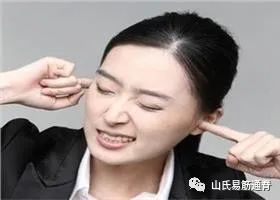
To determine whether a person has Qi deficiency, one can observe their external symptoms.
Generally speaking, individuals with Qi deficiency exhibit signs of physical weakness, but physical weakness alone cannot be used as a criterion for diagnosing Qi deficiency, as Qi deficiency, blood deficiency, Yin deficiency, and Yang deficiency can all lead to physical weakness.
To accurately determine whether a person has Qi deficiency, we need to comprehensively assess the following symptoms:
1. Individuals with Qi deficiency may be overweight.
A person with balanced Qi and blood can absorb what is needed from food, excrete what should be eliminated, and transform what should be transformed, resulting in a body that is neither overweight nor underweight.
However, individuals with Qi deficiency have insufficient righteous Qi, causing substances that should be transformed to accumulate as fat over time, leading to obesity.
Therefore, if a person is overweight, it is likely due to Qi deficiency, but it could also be related to Yang deficiency, phlegm-dampness, or damp-heat, all of which are closely related to Qi deficiency.
Of course, we cannot conclude that thin individuals do not have Qi deficiency; for example, those with Spleen Qi deficiency may appear emaciated, so we must consider other symptoms for a comprehensive assessment.
2. A swollen tongue with teeth marks.
As mentioned in previous articles, the fundamental cause of Qi deficiency is Spleen Qi deficiency. Therefore, individuals with Qi deficiency often exhibit a tongue pattern associated with Spleen Qi deficiency, characterized by a swollen tongue, thick white coating, and excessive saliva, with teeth marks on the edges.
However, individuals with mild Qi deficiency may not present this tongue pattern. Moreover, not everyone with this tongue pattern has Qi deficiency; only about half of those with this pattern are Qi deficient.
Thus, relying solely on tongue appearance to diagnose Qi deficiency is not accurate; it should be combined with other symptoms for further assessment.
3. Spontaneous sweating during the day or sweating upon exertion.
Qi has the function of holding and containing sweat. When Qi is deficient, it cannot hold sweat, leading to spontaneous sweating during the day or sweating upon exertion. In severe cases, even slight changes in clothing or eating a meal can cause profuse sweating.
4. Susceptibility to colds and flu.
Qi deficiency indicates insufficient righteous Qi in the body, and righteous Qi helps the body resist external pathogens. When righteous Qi is insufficient, the body is unable to fend off external invasions, making individuals with Qi deficiency particularly susceptible to colds and flu.
5. Weakness in the limbs and dizziness upon exertion.
Both Qi deficiency and blood deficiency can lead to weakness in the limbs, causing individuals to feel lethargic and reluctant to move. However, there are distinctions between Qi deficiency and blood deficiency:
Individuals with blood deficiency tend to feel drowsy and want to sleep, often sleeping for long periods without wanting to get up. In contrast, those with Qi deficiency may feel weak and prefer to lie down, but they do not experience the same level of drowsiness.
6. Shortness of breath, low energy, and a weak voice.
Individuals with Qi deficiency often experience shortness of breath, feeling as though they lack the energy to engage in activities. They may not only feel weak in their limbs but also be reluctant to speak, and when they do, their voice is low and weak, resembling a faint whisper.
If most of the above symptoms resonate with you, it indicates that you indeed have Qi deficiency and need to take measures to tonify Qi to prevent further deterioration of your health.
However, since all five organs can store Qi, which organ’s Qi deficiency is more pronounced? For a more detailed understanding, please continue reading the following content.
Symptoms of Qi Deficiency in the Five Organs:
Regardless of which organ has Qi deficiency, it can lead to the aforementioned symptoms. However, due to the different functions of the five organs, Qi deficiency in different organs also presents unique symptoms.
1. Lung Qi Deficiency: Those with predominant Lung Qi deficiency may experience cough, asthma, chest tightness, susceptibility to colds, and difficulty urinating or edema.
2. Kidney Qi Deficiency: Those with predominant Kidney Qi deficiency may experience lower back pain, weakness in the lower limbs, and increased frequency of clear urination; women may also experience clear and thin vaginal discharge.
3. Spleen Qi Deficiency: Those with predominant Spleen Qi deficiency may experience reduced appetite, discomfort after eating, weight loss, loose stools, and pale yellow complexion.
4. Heart Qi Deficiency: Heart Qi deficiency cannot propel blood or nourish the spirit, leading to palpitations and shortness of breath, with symptoms worsening during exertion, pale tongue, and weak pulse.
5. Liver Qi Deficiency: Individuals with Liver Qi deficiency may exhibit five typical symptoms: 1) discomfort or distension in the hypochondriac region; 2) emotional symptoms such as depression and indecisiveness; 3) visual disturbances; 4) numbness or weakness in the limbs; 5) a pulse that is weak with a wiry quality, and a complexion that is yellow with a hint of green.
Unique Symptoms of Qi Deficiency in Children:
While we mentioned that individuals with Qi deficiency may exhibit weakness in the limbs, this may not apply to children.
Children are typically active, and if the degree of Qi deficiency is not severe, they may not show signs of weakness or fatigue. If a child appears lethargic, it may indicate a serious illness or prolonged weakness.
Therefore, to determine whether a child has Qi deficiency, we cannot rely solely on the presence of weakness or fatigue. We should also consider other factors such as tongue diagnosis and pulse diagnosis, as well as facial complexion.
For example, children with Spleen Qi deficiency often have a dull complexion, while those with Lung Qi deficiency may have a pale complexion. These are auxiliary methods for assessment.
Final Thoughts:
Blood is the mother of Qi, and Qi and blood are interdependent. Therefore, Qi deficiency and blood deficiency are closely related, and their symptoms often appear together, making it difficult to distinguish between them.
